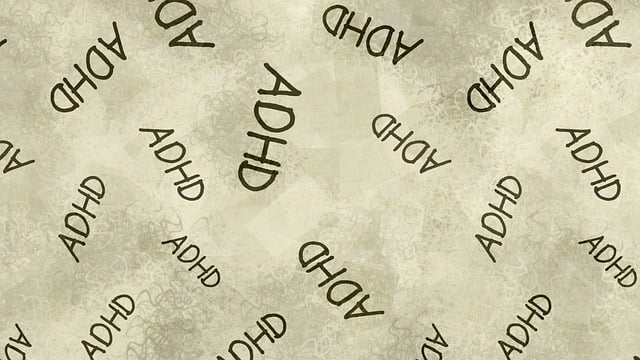Lafayette Depression Therapy leads the way in revolutionizing mental health support for underserved communities through targeted outreach programs. By bringing services directly to individuals, these initiatives bridge care gaps, educate the public about mental health, and foster supportive environments where people feel comfortable seeking help. This community-driven approach leverages local insights, partners with schools and organizations, and implements structured risk assessment protocols. Effective programs gain credibility through strategic planning, creative platforms like podcasts, and interactive workshops. Robust evaluation measures track participation rates, feedback, and mental health improvements. Finally, scalable and sustainable practices, including training healthcare professionals and building self-care empowerment, ensure long-term success in transforming lives and fostering resilient communities.
Community outreach programs play a pivotal role in addressing mental health concerns, particularly in areas like Lafayette, where access to specialized therapy can be limited. This article explores the implementation of effective depression therapy initiatives, focusing on strategies that engage the community. We delve into designing tailored programs, achieving buy-in, measuring impact, and scaling successful models for long-term benefits. By examining these aspects, we aim to highlight the transformative potential of Lafayette Depression Therapy in enhancing community mental well-being.
- Understanding the Need for Community Outreach Programs in Mental Health Support
- Designing Effective Lafayette Depression Therapy Programs with Community Engagement
- Strategies for Successful Implementation and Community Buy-in
- Measuring Impact: Evaluating the Success of Outreach Initiatives
- Scaling and Sustaining Lafayette Depression Therapy Programs for Long-term Benefits
Understanding the Need for Community Outreach Programs in Mental Health Support

In many communities, mental health issues often go unnoticed or undiscussed, leading to a significant gap in support for those struggling with depression and related conditions. Community outreach programs play a pivotal role in addressing this challenge by bringing essential services directly to individuals who might otherwise face barriers to accessing care. For instance, Lafayette Depression Therapy has recognized the need to extend its services beyond traditional therapy settings, focusing on community engagement to foster mental well-being.
These programs aim to enhance overall community resilience and empower residents with tools for stress management, emotional intelligence, and inner strength development. By organizing workshops, awareness campaigns, and support groups, organizations like Lafayette Depression Therapy can educate the public about mental health, dispel stigma, and provide early interventions. Such initiatives are crucial in creating a supportive environment where individuals feel comfortable seeking help and fostering a sense of connectedness that is vital for emotional well-being.
Designing Effective Lafayette Depression Therapy Programs with Community Engagement

Effective Lafayette Depression Therapy programs require a community-centric approach to achieve lasting impact. Engaging local communities in the design and delivery of these programs can significantly enhance their reach and success. By incorporating feedback from residents, community leaders, and mental health professionals, initiatives can be tailored to address specific needs and challenges unique to Lafayette. This collaborative process ensures relevant, accessible, and culturally sensitive therapy models that foster self-esteem improvement and encourage open conversations about mental well-being.
Community engagement goes beyond initial program design. Regular partnerships with local organizations and schools facilitate ongoing support and risk management planning for mental health professionals. Implementing structured risk assessment protocols is crucial to identify potential risks within the community and ensure appropriate resources are in place. This proactive approach not only enhances service delivery but also contributes to a robust risk management strategy for Lafayette Depression Therapy, ultimately promoting the well-being of the entire community.
Strategies for Successful Implementation and Community Buy-in

Implementing community outreach programs requires a strategic approach to ensure success and foster community buy-in, especially when addressing mental health concerns like depression. Lafayette Depression Therapy has found that engaging the community through various initiatives can significantly impact the well-being of its members. One key strategy is to involve local leaders and organizations in the planning stages. By collaborating with schools, churches, community centers, and government bodies, the program gains credibility and access to diverse networks. This collective effort helps tailor activities and resources to meet the unique needs of different demographic groups.
Additionally, leveraging creative platforms like the Mental Wellness Podcast Series Production can attract a broader audience and increase awareness. Incorporating interactive elements, such as workshops or online discussions, allows participants to actively engage in learning coping skills development. Regularly sharing success stories and positive outcomes from these programs also encourages community members to participate actively and spread awareness about available mental health resources. The collective effort not only enhances Mental Health Awareness but also ensures that support systems are accessible and well-integrated into the fabric of the community.
Measuring Impact: Evaluating the Success of Outreach Initiatives

Measuring the impact of community outreach programs, such as Lafayette Depression Therapy initiatives, is a vital step in evaluating their success and effectiveness. It’s not just about reaching out to the community; it’s about creating lasting change. By implementing robust evaluation strategies, organizations can assess the reach, engagement, and outcomes of their initiatives. This includes tracking participation rates, collecting feedback from participants, and measuring improvements in mental health indicators.
For example, Lafayette Depression Therapy might measure the success of its programs by observing increases in community members seeking ongoing mental wellness support, decreases in local healthcare provider burn-out rates (as per Burnout Prevention Strategies for Healthcare Providers), and enhanced stress management skills within the targeted demographics. These evaluations not only help in understanding the immediate impact but also guide future program planning, ensuring resources are allocated effectively to meet the unique needs of the community.
Scaling and Sustaining Lafayette Depression Therapy Programs for Long-term Benefits

Implementing Lafayette Depression Therapy programs requires careful consideration for both scalability and sustainability to ensure long-term benefits. Scaling these initiatives involves identifying effective strategies that can be replicated across different communities, while adapting to local needs and resources. This includes training a diverse network of healthcare professionals and volunteers in evidence-based practices such as cognitive behavioral therapy and mindfulness techniques. By fostering strong community partnerships and engaging with local leaders, these programs can gain traction and reach a wider audience.
Sustainability is paramount to ensuring the longevity of Lafayette Depression Therapy. Incorporating self-care practices and empathy building strategies within the program structure empowers individuals to manage stress and maintain mental well-being over time. Regular monitoring and evaluation processes help identify areas for improvement, allowing programs to remain responsive to evolving community needs. Through continuous innovation and collaboration, Lafayette Depression Therapy initiatives can deliver sustained impact, transforming lives and fostering resilient communities.
Implementing community outreach programs for mental health support, particularly focusing on Lafayette Depression Therapy, is a multifaceted approach that requires careful planning and community engagement. By understanding the local needs, designing tailored programs, securing buy-in, and measuring impact, these initiatives can revolutionize access to care. Scaling successful models ensures long-term benefits, fostering resilient communities where mental well-being is prioritized and supported.














